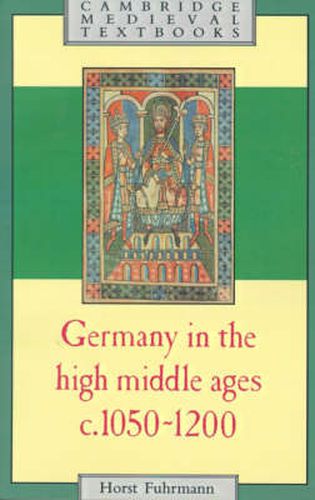Readings Newsletter
Become a Readings Member to make your shopping experience even easier.
Sign in or sign up for free!
You’re not far away from qualifying for FREE standard shipping within Australia
You’ve qualified for FREE standard shipping within Australia
The cart is loading…






Germany in the High Middle Ages opens with a wide-ranging and yet detailed description of the conditions under which men lived and their attitudes of mind during the period 1050-1200: against this background it proceeds to analyse the fundamental Political, social, economic and cultural changes of the period in central Europe. Professor Fuhrmann considers the social transformation brought about by the emergence of new classes such as ministeriales and burghers, and examines the intellectual renewal reflected in the rise of scholasticism and the foundation of the universities. He also describes the gradual erosion of the power of the German rulers, which led to the Empire losing its position as the leading power in Europe, and yet was accompanied, by a last flowering under the Staufen emperors arid the chivalric culture with which they were closely associated. Throughout the book these changes are contrasted with contemporary developments elsewhere in Europe, especially in France, England and Italy.
$9.00 standard shipping within Australia
FREE standard shipping within Australia for orders over $100.00
Express & International shipping calculated at checkout
Germany in the High Middle Ages opens with a wide-ranging and yet detailed description of the conditions under which men lived and their attitudes of mind during the period 1050-1200: against this background it proceeds to analyse the fundamental Political, social, economic and cultural changes of the period in central Europe. Professor Fuhrmann considers the social transformation brought about by the emergence of new classes such as ministeriales and burghers, and examines the intellectual renewal reflected in the rise of scholasticism and the foundation of the universities. He also describes the gradual erosion of the power of the German rulers, which led to the Empire losing its position as the leading power in Europe, and yet was accompanied, by a last flowering under the Staufen emperors arid the chivalric culture with which they were closely associated. Throughout the book these changes are contrasted with contemporary developments elsewhere in Europe, especially in France, England and Italy.